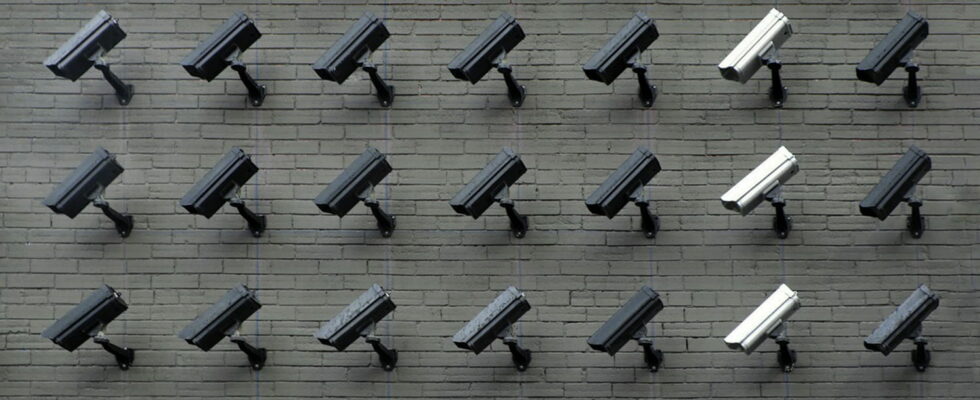The Argentine president has created a Unit dedicated to security that, thanks to AI, will have to “predict future crimes”. A device that greatly worries human rights defenders…
Video surveillance has become part of our daily lives, and it’s not about to stop. While video surveillance systems initially relied on analog devices (cameras, VCRs, etc.) and human operators, they are increasingly using automated digital technologies that are more efficient but also more worrying, at a time when artificial intelligence (AI) is becoming widespread. We are also witnessing the gradual deployment, on a global scale, of so-called “augmented” cameras, which are increasingly used to monitor public spaces. A widespread practice in countries such as the United States, China, the United Kingdom, Israel, Singapore, India, and also France.
It is the turn of the far-right Argentine president Javier Milei – known for having made a chainsaw the symbol of his electoral campaign, with the elimination of several social ministries – to look at this technology. As reportedThe Guardianhe announced on Thursday, August 1, the creation of an Artificial Intelligence Unit applied to security (UIAAS). Its mission will be to use the “machine learning algorithms” to analyze “historical crime data”with the aim of “predict future crimes and contribute to their prevention“. A device which greatly worries human rights defenders…
Cybersurveillance in Argentina: profiling suspects using AI
The UIAAS will be headed by the Director of Cybercrime and Cyber Affairs and will be integrated into the Argentine Federal Police and Security Forces. Its mission will be “the prevention, detection, investigation and prosecution of crime and its connections through the use of artificial intelligence.”
To do this, she will have to “identify unusual patterns in computer networks and detect cyber threats before attacks occur”whether it is malware, phishing or “other forms of cyber attacks”. She will also have to “processing large volumes of data from various sources to extract useful information and create suspect profiles or identify links between different cases”as well as patrolling public social media, apps, websites and even the Dark Web “in order to investigate crimes and identify their perpetrators, as well as to detect situations of serious risk to security”. Finally, it will have to analyze activities on social networks to “detect potential threats, identify the movements of criminal groups and anticipate unrest”.
At the same time, the unit will be responsible for drone surveillance operations and will use facial recognition to strengthen security measures and identify wanted persons. Quite a program!
Cybersurveillance in Argentina: a high risk of totalitarian excesses
There is, however, a small snag in this cheerful program: the points developed in the document do not specify the framework behind this use of AI, which could lead to fears of a drift towards mass surveillance. According to several organizations, this measure could infringe on human rights. “Large-scale surveillance undermines freedom of expression because it encourages people to self-censor or refrain from sharing their ideas if they suspect that everything they comment, publish or post is being monitored by security forces.”said Mariela Belski, executive director of Amnesty International Argentina.
The lack of transparency in the acquisition and implementation of technologies and the failure to provide information are of concern. In this regard, these technologies are used to profile academics, periodists, politicians and activists: https://t.co/aQC4fAIHHJ
— CELE (@CELEUP) July 29, 2024
For its part, the Argentine Center for Studies on Freedom of Expression and Access to Information (CELE) deplores “the opacity surrounding the acquisition and implementation of technologies” and recalls that these technologies have already been used in the past for “profile academics, journalists, politicians and activists”.
The other concern concerns the collection of personal data used to investigate or establish the famous file “potential suspects”. Here again, the criteria for assessing what may or may not lead to suspecting a person are not detailed in the resolution, which leaves the door open to totalitarian excesses. As for the question of data protection, experts are concerned about who will be able to access the information produced by AI, and how it will have been retrieved.
No need to worry, however! A source from the Ministry of Security questioned by The Guardian ensures that this unit “will work within the current legislative framework, in particular within the framework of the law on the protection of personal information”. We are reassured!
